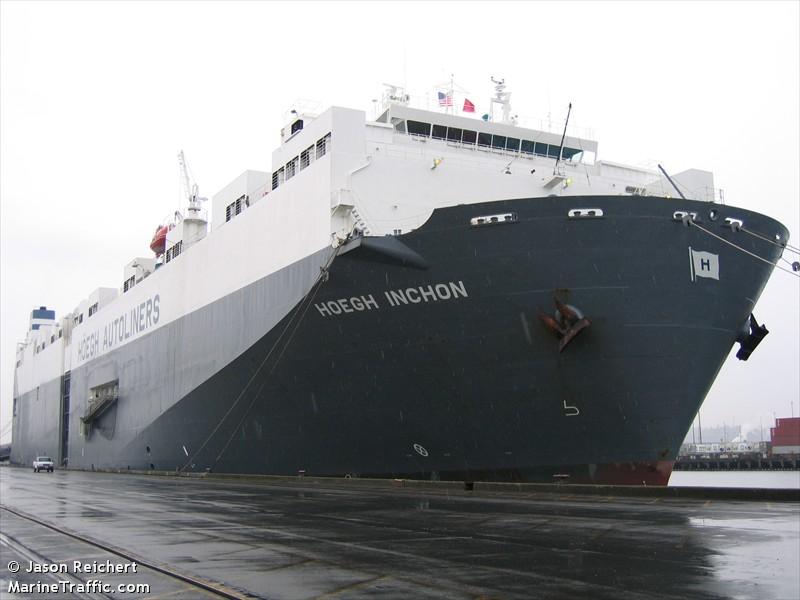Major Cocaine Bust: UK Border Force Seizes Record Shipment at London Gateway
In one of the UK’s largest drug seizures of the past decade, UK Border Force officers have seized cocaine with an estimated street value of £96 million (USD 130 million)...

Image (c) Jason Reichert/MarineTraffic
The California Air Resources Board (ARB) announced they have levied fines against three maritime shipping firms for failing to switch from heavy fuel oil to low sulfur marine distillate fuel before entering “Regulated California Waters.”
California Health and Safety Code Section 39560-39675, requires the ARB to identify and control toxic air contaminants (TAC) in California. Emissions from engines powered by heavy fuel oil have been identified to contain such contaminants.
“Ships en route to California ports emit thousands of tons of diesel exhaust each year,” said ARB Enforcement Chief Jim Ryden. “Our regulation requiring ocean-going vessels to switch to cleaner fuel within 24 nautical miles of our shoreline protects all California residents, especially those in port communities, from this air pollution.”
An ARB investigation showed that on 17 visits to California ports between November 6, 2009 and July 18, 2011, the car carrier Hoegh Inchon, owned by Hoegh Autoliners, operated its main engines within Regulated California Waters on heavy fuel oil resulting in a $299,500 fine to parent company, Hoegh Autoliners Shipping AS Co. of Oslo, Norway.
In February 2013, prior to docking at the Ports of Stockton and Long Beach, the bulk carrier Ikan Bawal was cited for failing to switch its engines over to the required cleaner fuel while operating within Regulated California Waters. Its owner, N.C.N Corporation Panama, was fined $87,750.
In August 2012, after it docked at the Port of Los Angeles, the geared bulk carrier K-Pluto was also cited for failing to switch to the required cleaner fuel while operating within Regulated California Waters. Its parent company, Twin Phoenix Shipping S.A. of Singapore, was fined $53,000.
All three companies complied with ARB’s investigation and agreed to abide by all pertinent ARB regulations, follow fuel switchover requirements, and keep accurate records.
The fines go to the California Air Pollution Control Fund to support air quality research, The ARB conducts over 500 ship inspections each year, checking for proper fuel usage, record-keeping and other compliance requirements, and takes marine gas oil or marine diesel oil samples for submission to the ARB laboratory to ensure they meet California standards for sulfur.

Sign up for gCaptain’s newsletter and never miss an update

Subscribe to gCaptain Daily and stay informed with the latest global maritime and offshore news


Stay informed with the latest maritime and offshore news, delivered daily straight to your inbox
Essential news coupled with the finest maritime content sourced from across the globe.
Sign Up